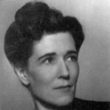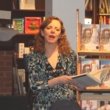The scandal of the season
Description
Alexander Pope, sickly and nearly penniless, is peripheral by birth, yet his uncommon wit and ambition gain him unlikely entrance into high society. Once there, privy to every nuance and drama, he is a ruthless observer. He longs for the success that will cement his place in society; all he needs is one poem grand enough to make his reputation.
As the forbidden passion between Arabella and Lord Petre deepens, an intrigue of a darker nature threatens to overtake them. Fortunes change and reputations -- even lives -- are imperiled. In the aftermath, Pope discovers the idea for a daring poem that will catapult him to fame and fortune.
More Details
Excerpt
Similar Titles From NoveList
Similar Authors From NoveList
Published Reviews
Booklist Review
England in the beginning of the eighteenth century was a time known for the wit of its intellectuals as well as the crudeness of daily life. The great men of the era attended to business in coffeehouses nobles cheek by jowl with writers trading jests and jibes, making and destroying reputations with impunity. In the London season of 1711, a hopeful Alexander Pope visiting his painter friend Jervas finds himself in the perfect position to observe the scandal that his genius would turn into The Rape of the Lock. The cast of characters glitters with members of the British nobility and of the English literati, with the seduction of the virginal beauty Arabella Fermor by Lord Petre at the heart of the story. A touch of suspense comes from a Jacobin plot that targets the aging Queen Anne for replacement by the Stuart king in exile. True to the mores of the era and to the historical record, this agreeable and gossipy read will appeal to those who like their history with a touch of spice.--Loughran, Ellen Copyright 2007 Booklist
Publisher's Weekly Review
Hunchbacked satirist poet Alexander Pope finds inspiration in the foibles of 18th-century London's young, rich and arrogant in Gee's shrewd debut, an erudite period piece filled with outrageous flirtation, social maneuvering and contests of wit. The low-born Pope is permitted entry to London's upper echelons after some of his poems gain a gilded readership, and his literary ambitions and adventures in the city with childhood friends Martha and Teresa Blount are offset by the passionate but clandestine romance between the beautiful Arabella Fermor (who happens to be related to the Blounts), and the haughty Lord Petre, whose involvement in a plot to assassinate the queen lands him in a tight spot. The stories intersect when Pope immortalizes the lovers' high-class intrigue in a scalding poem. The novel is sprinkled with literary cameos and jokes English lit majors will appreciate, while crackling verbal one-upmanship and crude double entendres should keep the hoi polloi turning pages. Gee's take on the Paris Hilton-like figures who pranced through London 300 years ago manages to be simultaneously tabloid bawdy and academy proper. (Aug.) (c) Copyright PWxyz, LLC. All rights reserved
Library Journal Review
The title of this racy period piece is both a promise and a disappointment. Drawing on Alexander Pope's celebrated "The Rape of the Lock" and further examining the poet's literary yearnings early in his career, this debut novel explores social flaws and class warfare in 18th-century London. Despite the ribald characters, arch wit, and political intrigue, this isn't necessarily easy for the casual listener, though a more literary audience could appreciate it. Gee may bring Pope's poem to life on the page, but that's a tricky feat that might require some footnoting not available in audio format. Read by Cameron Stewart, Scandal is recommended only for a select clientele.--Joyce Kessel, Villa Maria Coll., Buffalo, NY (c) Copyright 2010. Library Journals LLC, a wholly owned subsidiary of Media Source, Inc. No redistribution permitted.
Kirkus Book Review
Princeton professor Gee's lively, highly literate debut explores the historical figures and events satirized in Alexander Pope's "The Rape of the Lock." The uneasy peace of Queen Anne's reign--marred by growing Whig-Tory animosity, anti-Catholic bias and stray pockets of rebellious Jacobites hoping to restore the deposed Catholic James II to the now Protestant throne--is the backdrop for high society frolics. Thanks to a small, growing literary reputation, Pope, though born into the Catholic merchant class and crippled by tuberculosis, gets to spend the 1711 social season in London, the guest of a fashionable portrait painter. Also in town are the Blount sisters, looking for marital matches despite their Catholicism and lack of money. Pope thinks he is in love with the charming Teresa but comes to share a deeper connection with her sister Martha. Also husband-hunting is the Blounts' wealthier, flashier cousin Arabella Fermor, whom Teresa unsuccessfully tries to emulate. For all her haughty demeanor, Arabella remains an innocent in love until she falls passionately for Robert, Lord Petre, a rich Catholic aristocrat. Robert falls equally hard for Arabella. Carrying on a semi-secret affair, Arabella assumes she is about to become Robert's wife and thus a baroness. But Robert has also mixed himself up in an ill-conceived Jacobite plot. When his parents learn he has risked the family's reputation, they require him to give up not only his political intriguing but also Arabella. He is quickly affianced to a less attractive but wealthier heiress. Robert cannot bring himself to tell Arabella, but he accepts a silly dare to cut off a lock of her hair at a party. Arabella is humiliated, especially when she discovers his engagement, but then shows unexpected depth of character. Meanwhile, Pope is asked to write a satire to make light of the incident, thus diffusing hostility between the two prominent families. The poem launches Pope's career. Delightfully gossipy, psychologically insightful and historically fascinating. Copyright ©Kirkus Reviews, used with permission.
Booklist Reviews
England in the beginning of the eighteenth century was a time known for the wit of its intellectuals as well as the crudeness of daily life. The great men of the era attended to business in coffeehouses—nobles cheek by jowl with writers—trading jests and jibes, making and destroying reputations with impunity. In the London season of 1711, a hopeful Alexander Pope—visiting his painter friend Jervas—finds himself in the perfect position to observe the scandal that his genius would turn into "The Rape of the Lock." The cast of characters glitters with members of the British nobility and of the English literati, with the seduction of the virginal beauty Arabella Fermor by Lord Petre at the heart of the story. A touch of suspense comes from a Jacobin plot that targets the aging Queen Anne for replacement by the Stuart king in exile. True to the mores of the era and to the historical record, this agreeable and gossipy read will appeal to those who like their history with a touch of spice. Copyright 2007 Booklist Reviews.
Library Journal Reviews
Alexander Pope captured the scandalous passions of Arabella Fermor and Robert Petre, seventh baron of Ingateson, in his celebrated poem The Rape of the Lock. Now Gee revisits the poem, the affair, and the era itself. With a BookClubReader.com feature. Copyright 2007 Reed Business Information.
Library Journal Reviews
Written by Alexander Pope at the request of his friend John Caryll, "The Rape of the Lock" clinched Pope's fame and assured his success. Gee's sparkling fiction debut provides the poem's backstory, portraying not only the beau and belle of the poem (Lord Robert Petre and Arabella Fermor) but also Pope's own coming to terms with his life: his relationship to longtime friends Teresa and Martha Blount, his attraction to and scorn for the fashionable world, and his uncomfortable social position as a cripple and a Catholic. The unfolding relationship between Arabella and Lord Fermor is exquisitely crafted, the presentation of their psyches complex and completely believable, and the narrative thoroughly involving, while the developing Jacobite intrigue adds spice. Occasionally, the overabundance of historical detail intrudes, slowing the pace and distancing the reader from the characters with references to their actual existence as historical personages. More ruthless editing would have increased the novel's impact and the reader's involvement. Nevertheless, this work is highly recommended. [See Prepub Alert, LJ 4/1/07.]—Cynthia Johnson, Cary Memorial Lib., Lexington, MA
[Page 76]. Copyright 2007 Reed Business Information.Publishers Weekly Reviews
H unchbacked satirist poet Alexander Pope finds inspiration in the foibles of 18th-century London's young, rich and arrogant in Gee's shrewd debut, an erudite period piece filled with outrageous flirtation, social maneuvering and contests of wit. The low-born Pope is permitted entry to London's upper echelons after some of his poems gain a gilded readership, and his literary ambitions and adventures in the city with childhood friends Martha and Teresa Blount are offset by the passionate but clandestine romance between the beautiful Arabella Fermor (who happens to be related to the Blounts), and the haughty Lord Petre, whose involvement in a plot to assassinate the queen lands him in a tight spot. The stories intersect when Pope immortalizes the lovers' high-class intrigue in a scalding poem. The novel is sprinkled with literary cameos and jokes English lit majors will appreciate, while crackling verbal one-upmanship and crude double entendres should keep the hoi polloi turning pages. The main disappointment is that Pope's much talked about poems never appear in full. But that's a small blemish, and Gee's take on the Paris Hilton–like figures who pranced through London 300 years ago manages to be simultaneously tabloid bawdy and academy proper. (Aug.)
[Page 29]. Copyright 2007 Reed Business Information.

































